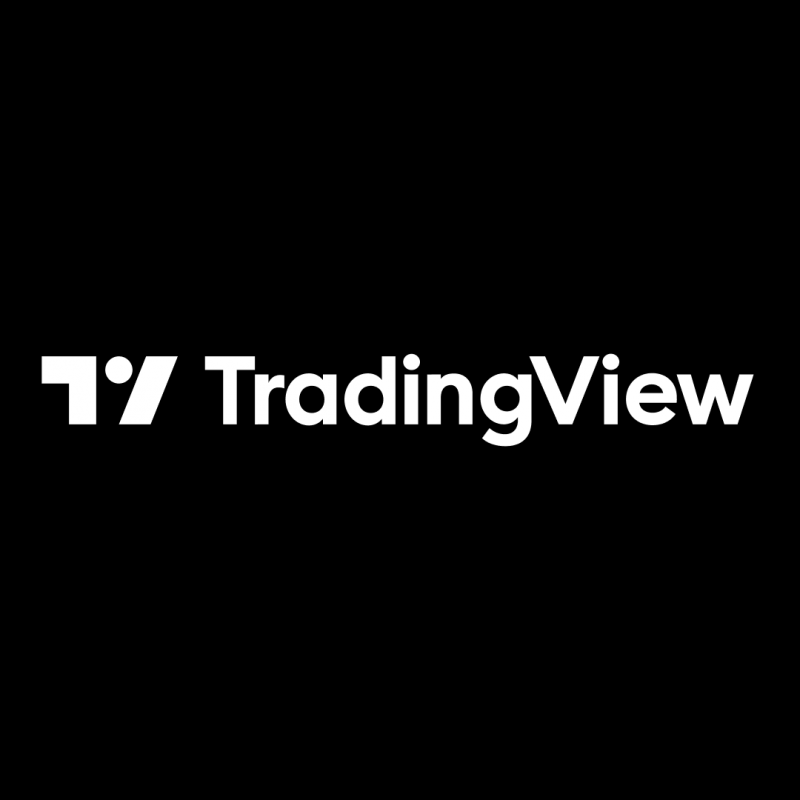Tencent is a Chinese multinational technology conglomerate headquartered in Shenzhen. It stands as one of the highest-grossing multimedia companies globally by revenue and is the world's largest video game company based on equity investments. Tencent's influence spans various digital sectors, including social media and gaming, solidifying its position as a leading technology and entertainment powerhouse.
1996: Release of ICQ by Mirabilis
In 1996, Mirabilis, an Israeli company, released ICQ, one of the first stand-alone instant messaging clients.
1998: AOL Buys ICQ
In 1998, AOL bought ICQ.
February 1999: Launch of Tencent QQ
In February 1999, Tencent launched Tencent QQ, its first and most notable product, which became a popular instant messaging platform.
December 2000: Rebranding of OICQ to QQ
In December 2000, Tencent released a new version of OICQ and rebranded it to QQ after losing a lawsuit against AOL for violating ICQ's intellectual property rights.
September 2005: Launch of PaiPai.com and TenPay
In September 2005, Tencent launched PaiPai.com, a C2C auction site, and TenPay, an online payment system.
2005: Tencent Launched Qzone
In 2005, Tencent launched Qzone, a social networking/blogging service integrated within QQ.
March 2006: Launch of Soso.com
In March 2006, Tencent launched its search engine Soso.com.
2006: Mobile Messaging Fee Implemented for QQ
In 2006, while the QQ IM service itself was free, a fee was charged for mobile messaging.
2008: QQ User Growth
By 2008, QQ had reached 856 million users, with a peak of 45.3 million synchronous users.
2008: Release of QQ Player and Tencent Traveler
In 2008, Tencent released QQ Player, a free media player, and Tencent Traveler, a web browser. Tencent Traveler became the third most-visited browser in China in 2008.
April 2009: Tencent Launched iTQQ with TCL
In April 2009, Tencent launched iTQQ, a "smart interactive television service" in a joint effort with TCL.
April 2010: Tencent Launched Tencent Weibo
On 10 April 2010, Tencent launched Tencent Weibo, a microblogging service.
December 2010: QQ reached 647.6 Million Active User Accounts
As of 31 December 2010, there were 647.6 million active Tencent QQ IM user accounts.
June 2011: Launch of Tencent Video
In June 2011, Tencent launched Tencent Video, a video streaming website.
March 2012: Tencent Launched Tencent Comic
On 21 March 2012, Tencent launched Tencent Comic, which would later become China's largest online animation platform.
October 2012: Soso.com Popularity
On 1 October 2012, Soso.com was the 33rd most visited website in the world, 11th most visited in China, and 8th most visited in South Korea.
2012: Investments in Game Companies Begin
During 2012, Tencent began investing in worldwide-famous game companies such as Riot Games, Epic Games, Activision Blizzard, SuperCell, and Bluehole.
2012: Launch of Tencent YouTu Lab
In 2012, Tencent launched Tencent YouTu Lab, an AI research department focused on computer vision, including OCR, image understanding, and generation.
September 2013: Discontinuation of Soso.com
In September 2013, Tencent discontinued Soso.com after investing in Sogou, replacing Soso.com with Sogou Search as its main search engine.
March 2014: Investment in JD.com
On 10 March 2014, Tencent acquired a 15% stake in Chinese e-commerce website JD.com Inc., transferring its e-commerce businesses Paipai.com, QQ Wanggou, and a stake in Yixun to JD.com, and securing exclusive access to Tencent's WeChat and MobileQQ platforms for JD.com.
May 2014: JD.com Listed on NASDAQ
In May 2014, JD.com became the first Chinese e-commerce company to be listed on the NASDAQ exchange, under its ticker 'JD'.
2014: Qzone Had a User Base of 645 Million
In 2014, Qzone had a user base of 645 million, becoming one of the largest social networking services in China.
December 2015: JD.com to stop supporting Paipai.com
On 31 December 2015, JD announced that they will stop supporting services on Paipai.com due to issues with fake goods, and had integrated the Paipai.com team within its other e-commerce platforms.
2015: Tencent Launched Tencent Pictures and Tencent Penguin Pictures
In 2015, Tencent launched Tencent Pictures, a film distributor and production company, and Tencent Penguin Pictures, a production unit focusing on online dramas.
2015: Tencent Removed from Software Whitelists
In 2015, security testing firms AV-Comparatives, AV-TEST and Virus Bulletin jointly decided to remove Tencent from their software whitelists due to concerns about optimisations that masked exploits during benchmarking, alongside detrimental software settings. Tencent was also accused of actively gaming the anti-malware tests.
April 2016: Paipai.com Fully Shut Down
Paipai.com was fully shut down by 1 April 2016 after a 3-month transitional period. JD relaunched PaiPai.com as PaiPai Second Hand to compete alongside 58 Tongcheng's Zhuanzhuan.com, against Alibaba's Xianyu in the second-hand e-commerce market.
December 2016: Announcement of QQ Haiwai
Haiwai, Tencent's first venture into international real estate listings and information, was announced at Tencent's annual regional summit in Beijing on 21 December 2016. Haiwai is the result of a partnership with Chinese international real estate website Juwai.com.
April 2017: Virtual Reality Headset Launch Preparation
In late April 2017, Tencent announced that it was preparing to launch its virtual reality headset later that year.
August 2017: Release of AI Medical Innovation System (AIMIS)
In August 2017, Tencent released the AI Medical Innovation System (AIMIS), also known as Miying, which is designed to assist doctors with medical imaging and diagnosis, including screening for diseases such as diabetic retinopathy, lung cancer, and esophageal cancer. The AI-assisted diagnosis engine can identify and estimate the risk of over 700 diseases, with recognition accuracy reaching 90% for esophageal cancer, 97% for diabetic retinopathy, and 97.2% for colorectal cancer.
September 2017: Tencent Plans to Introduce Chinese Online Comics to Global Markets
In September 2017, Tencent announced plans to introduce Chinese online comics globally, starting with North America, in partnership with Tapas Media.
November 2017: Tencent Purchased Stake in Snap Inc., WeChat Active Users Reached 980 Million, and Valuation Surpassed Facebook
In November 2017, Tencent purchased a 12% stake in Snap Inc., aiming to establish Snapchat as a gaming platform. WeChat reached 980 million monthly active users. Tencent became the first Asian company to cross US$500 billion in valuation, surpassing Facebook.
December 2017: Tencent Music and Spotify Agreed to Swap Stakes
In December 2017, Tencent Music Entertainment (TME) and Spotify agreed to swap a 10% stake in each other's music businesses.
2017: Launch of Tencent Credit
In 2017, Tencent launched its own credit score system called Tencent Credit, similar to the Sesame Credit system operated by Alibaba Group.
2017: Tencent Signed Deal with Universal Music Group and Partnered with Alibaba
In 2017, Tencent signed a deal with Universal Music Group for music streaming in China and partnered with Alibaba Group on music-streaming rights sharing.
January 2018: Tencent partnered with Lego, invested in Wanda Commercial, Skydance Media and reached strategic cooperation with Carrefour
In January 2018, Tencent partnered with The Lego Group to develop online games and a social network for children. Tencent invested US$5.2 billion in Wanda Commercial with JD.com, Sunac, and Suning Group. Tencent also bought a 5% to 10% minority stake in Skydance Media and reached strategic cooperation with Carrefour in China.
June 2018: Tencent Sues Toutiao and TikTok
In June 2018, Tencent filed a lawsuit against Toutiao and TikTok in a Beijing court, alleging they had repeatedly defamed Tencent with negative news and damaged its reputation, seeking a nominal sum of RMB 1 million in compensation and a public apology. Toutiao responded with a complaint against Tencent for unfair competition, asking for RMB 90 million in economic losses.
August 2018: Tencent Reported Profit Decline
On 15 August 2018, Tencent reported a profit decline in the second quarter, ending a decade-long growth streak due to investment losses and government scrutiny of the gaming business. Shares fell by 3% in Hong Kong.
September 2018: Luckin Coffee signed strategic cooperation agreement with Tencent
On 6 September 2018, Luckin Coffee signed a strategic cooperation agreement with Tencent.
November 2018: Tencent Charity Foundation Donated to Establish Xplorer Prize
In November 2018, the Tencent Charity Foundation donated RMB$1 billion to establish the Xplorer Prize award for young scientists.
2018: Tencent Designated as AI Champion
In 2018, China's government designated Tencent as one of its "AI champions".
2018: Litigation with ByteDance Begins
Since 2018, Tencent has been in litigation with ByteDance, involving unfair competition lawsuits alleging that Tencent was blocking their content. Disputes over jurisdiction have largely prevented resolution.
August 2019: Collaboration on "Patriotic Games"
In August 2019, it was reported that Tencent collaborated with the propaganda department of the Guangdong Provincial Committee of the Chinese Communist Party and the People's Daily to develop "patriotic games".
October 2019: Tencent Music Reached Distribution Agreement with CD Baby and TuneCore
In October 2019, Tencent Music reached a streaming music distribution agreement with CD Baby and TuneCore, providing access to the Chinese music market for independent music artists.
October 2019: Tencent Stops Broadcasting Houston Rockets Games
In October 2019, Tencent announced it would stop broadcasting Houston Rockets NBA games in China due to a tweet made by Daryl Morey, general manager of the Rockets, that was supportive of protestors in the 2019–2020 Hong Kong protests.
December 2019: Chinese Government Orders Improvement of User Data Rules
In December 2019, the Chinese government ordered Tencent to improve the firm's user data rules for its apps, which regulators regarded to be in violation of censorship rules.
2019: Investment in Game Companies
During 2019, Tencent continued investing in world-wide-famous game companies such as Riot Games, Epic Games, Activision Blizzard, SuperCell, and Bluehole, holding from minority stakes to majority stakes.
2019: Announcement of WeCity Project
In 2019, Tencent announced its WeCity project, aimed at developing a smart city solution for digital governance, urban management, decision-making, and industrial interconnections.
March 2020: Acquisition of Universal Music Group Stake
In March 2020, Tencent acquired a 10% stake in Vivendi's Universal Music Group, the world's largest music group, with an option to buy another 10% under the same conditions.
March 2020: Testing of Trovo Live
In March 2020, Tencent began testing Trovo Live, a live-streaming service intended for worldwide users.
March 2020: Co-innovation Lab Launch with Huawei
On 27 March 2020, Tencent launched a co-innovation lab in collaboration with Huawei to develop a cloud-based game platform, utilizing Huawei's Kunpeng processor to build Tencent's GameMatrix cloud game platform. The collaboration also involves exploring the possibilities of artificial intelligence and augmented reality elements in games.
May 2020: Tencent Purchased Rights to System Shock 3
In May 2020, Tencent purchased the rights to create System Shock 3 and future sequels from OtherSide Entertainment.
May 2020: Investment in New Digital Infrastructure
On 26 May 2020, Tencent announced plans to invest 500 billion yuan (US$70 billion) over the next five years in new digital infrastructure, aimed at bolstering economic recovery in the post-coronavirus era.
June 2020: Increased Stake in Nio
At the end of June 2020, Tencent increased its direct stake in Nio to 15.1% after acquiring more of the Chinese electric vehicle maker's New York-listed shares, spending $10 million to buy 1.68 million American Depositary Shares earlier in the month.
June 2020: Purchase of Warner Music Group Shares
In June 2020, Tencent purchased 1.6% of Warner Music Group's shares following WMG's IPO that same month.
June 2020: Unveiling of "Net City" Project
In June 2020, Tencent unveiled plans for an urban development project dubbed "Net City" in Shenzhen, a 21-million-square-foot development prioritizing pedestrians, green spaces, self-driving vehicles, corporate offices, schools, sports facilities, parks, retail space, and apartments.
June 2020: Tencent Acquired iflix
On 29 June 2020, Tencent acquired the video-on-demand service iflix in Kuala Lumpur, Malaysia.
June 2020: Ownership of Iflix
Since June 2020, Tencent owns the Malaysian Video-on-demand service Iflix.
October 2020: Introduction of AIMIS Image Cloud
In October 2020, Tencent introduced AIMIS Image Cloud, designed to help patients manage their medical images and grant medical professionals access, supporting full images on the cloud to reduce repeated exams and connecting medical institutions for remote expert diagnosis.
December 2020: Allegations of Funding from Ministry of State Security
In a December 2020 article in Foreign Policy, a former senior official of the Central Intelligence Agency stated that the CIA concluded that Tencent received funding from the Ministry of State Security early on in its foundation to build out the Great Firewall and the monitoring technology. Tencent denied this allegation.
2020: Tencent's Investment Portfolio
By 2020, Tencent had invested in over 800 companies worldwide, shifting its strategy from replicating competitors' products to acquiring them.
2020: Establishment of AI Joint Lab with Zhong Nanshan
In 2020, Tencent established an AI Joint Lab with respiratory disease expert Zhong Nanshan to conduct research on disease screening, prevention, and outbreak warnings, as part of Tencent's efforts to combat COVID-19 and future pandemics.
2020: NBA Damage Control in China
In 2020, following a tweet made in October 2019 by Daryl Morey, the NBA spent months attempting damage control in China after Tencent stopped broadcasting Houston Rockets games.
January 2021: Tencent Acquired Lazy Audio
In January 2021, Tencent acquired Lazy Audio from Shenzhen Lanren Online Technology Co for 2.7 billion yuan.
January 2021: Class Action Lawsuit Filed Against Tencent
In January 2021, a proposed class action lawsuit was filed in California against Tencent, alleging user censorship and surveillance via WeChat.
July 2021: China's regulator blocked the merger between Huya Live and DouYu and approved Tencent's plan to privatize Sogou
In July 2021, China's antitrust regulator blocked Tencent's plan to merge Huya Live and DouYu. Tencent's plan to privatize Sogou was approved by the SAMR.
July 2021: TikTok Lawsuit Dismissed
In July 2021, the lawsuit filed by TikTok against President Trump's executive order was dismissed after the order was revoked under Joe Biden's administration.
December 2021: Tencent acquired Slamfire Inc. and Turtle Rock Studios
On 17 December 2021, Tencent announced it had acquired Slamfire Inc. and its subsidiary Turtle Rock Studios.
December 2021: Stake in Monzo
On 31 December 2021, it was reported Tencent had bought a stake in the UK digital bank, Monzo.
January 2022: Tencent Fined for Failure to Report M&A Deals
In January 2022, Tencent was fined by the SAMR for failing to report merger and acquisition (M&A) deals in advance, totaling RMB 4.5 million (US$710,000) for involvement in nine deals.
January 2022: Tencent in Talks to Acquire Black Shark
In January 2022, Tencent was in talks to acquire Xiaomi-backed Black Shark but walked away from the deal due to regulatory scrutiny.
June 2022: Partnership for Influencer Development
In June 2022, Tencent partnered with Shanghai United Media Group to launch a plan to develop domestic and foreign influencers.
June 2022: Tencent Posted Slowest Revenue Gain Since Going Public
In June 2022, Tencent reported its slowest revenue gain since going public in 2004, due to the pandemic and tighter regulations. Advertising revenue decreased by 15%.
September 2022: Tencent acquired stake in Guillemot Brothers Limited and Triternion
In September 2022, Tencent acquired a 49.9% stake in Guillemot Brothers Limited, Ubisoft's parent company and took a minority stake in Mordhau studio Triternion.
November 2022: Sustainalytics Downgrades Tencent
In November 2022, Sustainalytics downgraded Tencent to "non-compliant" with the United Nations Global Compact principles due to complicity with censorship.
November 2022: Tencent to Divest Stake in Meituan
In November 2022, Tencent announced it would divest the majority of its US$20.3 billion stake in Meituan through a dividend distribution to shareholders.
December 2022: Launch of TanLIVE
In December 2022, Tencent launched TanLIVE, a co-developed platform which aims to bring together resources for climate change solutions in China.
2022: Goal of Carbon Neutrality
In 2022, Tencent established a goal of making the company and its supply chain carbon neutral.
January 2023: Tencent spent over $6.3 million lobbying the U.S. federal government and sold it's share in Tesla
In January 2023, OpenSecrets reported that Tencent spent over $6.3 million lobbying the U.S. federal government and Tencent had sold its share in Tesla.
January 2023: Tarisland Trailer Resemblance to World of Warcraft
In January 2023, Tencent's trailer for their new MMORPG, Tarisland, was said to resemble Blizzard's World of Warcraft.
December 2023: Tencent Accelerated Buybacks
Also in December 2023, Tencent accelerated the pace of buybacks, increasing the pace of daily purchases to about HK$1 billion and made a record HK$10 billion share purchase.
December 2023: China Literature acquired Tencent Animation and Comics
In December 2023, China Literature, a majority-owned subsidiary of Tencent, acquired Tencent Animation and Comics.
December 2023: Chinese regulations on online gaming caused Market Capitalisation to drop $46 Billion
On 22 December 2023, the Chinese government's regulations to curb online gaming cost Tencent $46 Billion in Market Capitalisation. Later, on 27 December 2023, the firm's stock rose by 5%.
2023: Debut of Hunyuan and Partnership with CAAS
In 2023, Tencent debuted its large language model Hunyuan for enterprise use. Also in 2023, Tencent announced its partnership with the Chinese Academy of Agricultural Sciences (CAAS) to establish a Digital Seed Bank at the Tencent Science and Technology Museum.
2023: Zero Project Award for MTGPA Haptics
In 2023, Tencent received the Zero Project Award for innovative ICT solutions for persons with disabilities. The MTGPA (Magic Tencent Game Performance Amelioration) Haptics technology transmits vibro-tactile signals to users, supporting orientation and notification, particularly for individuals with visual impairments or the elderly, and integrates with the Tencent Map app for indoor and outdoor guidance.
March 2024: Tencent Uploaded Revenue Report for Q4 2023
In March 2024, Tencent uploaded its revenue report for the 4th quarter of 2023, recording a 7% rise in revenue, slightly missing the expected mark.
December 2024: Apple Discussed AI Model Integration with Tencent
In December 2024, Apple decided to have talks with Tencent for integrating their artificial intelligence models into iPhones that are sold in China.
December 2024: Tencent Limits Influence Over Epic Games' Board
In December 2024, the U.S. Department of Justice announced that Tencent had removed two directors from Epic Games' board of directors and relinquished its unilateral right to appoint directors or observers to Epic's board due to antitrust concerns.
January 2025: Tencent Added to U.S. Military-Affiliated Entity List
In January 2025, the United States Department of Defense added Tencent to its list of entities associated with the Chinese military, which is considered a blacklisting. Tencent representatives contested the listing as a mistake and stated it would not impact their business, planning an appeal.
January 2025: Tencent Added to Watchlist of Companies Allegedly Working with China's Military
On 7 January 2025, Tencent was added to a watchlist of companies allegedly working with China's military.
Mentioned in this timeline
Huawei is a Chinese multinational technology corporation headquartered in Shenzhen...
TikTok also known as Douyin in China is a social...

Basketball is a team sport played on a rectangular court...

Epic Games founded by Tim Sweeney as Potomac Computer Systems...
Home Box Office HBO is an American pay television service...

Ubisoft Entertainment SA is a French video game publisher with...
Trending

40 minutes ago Anhelina Kalinina Competes in Antalya 2026: Match Updates and Predictions
41 minutes ago Medvedev defeats Auger-Aliassime, to face Griekspoor in the Dubai final.

41 minutes ago Lockheed Martin Stocks: Argent Trust, Aberdeen Group, Mitsubishi UFJ Transactions

10 months ago Trump Denies Firing Powell, Stocks Jump Amid Trade Talk Optimism: Market Reacts
2 hours ago Alaska Airlines Flight 261: Bird Strike Forces Emergency Landing, NTSB Investigates
2 hours ago Live Ninh Thuan Lottery results on 2026-02-27, Northern Lottery on 2026-02-27, Southern Lottery on 2026-03-01
Popular

Jesse Jackson is an American civil rights activist politician and...

XXXTentacion born Jahseh Dwayne Ricardo Onfroy was a controversial yet...

Michael Joseph Jackson the King of Pop was a highly...

Hillary Diane Rodham Clinton is a prominent American politician lawyer...

Susan Rice is an American diplomat and public official prominent...

Barack Obama the th U S President - was the...
